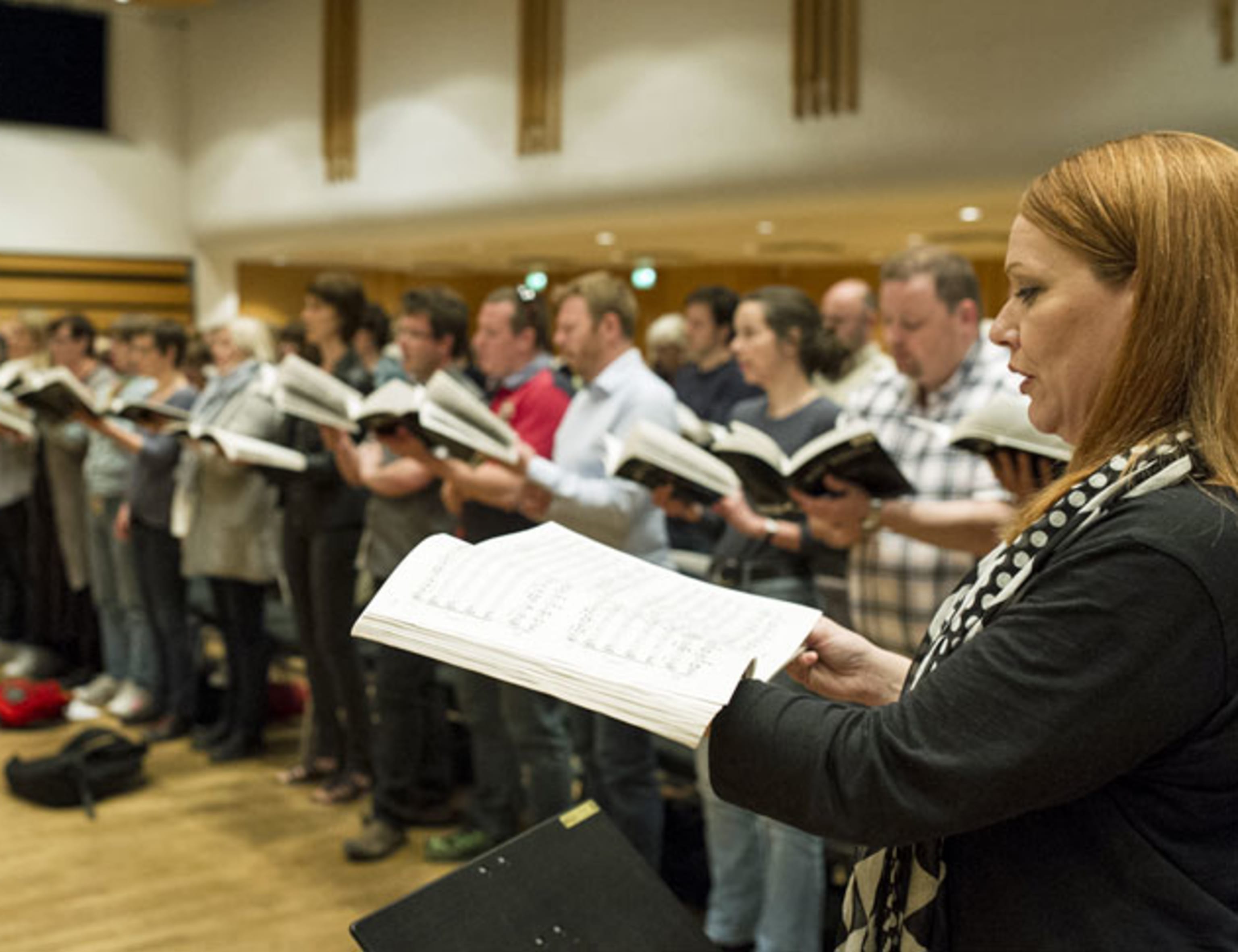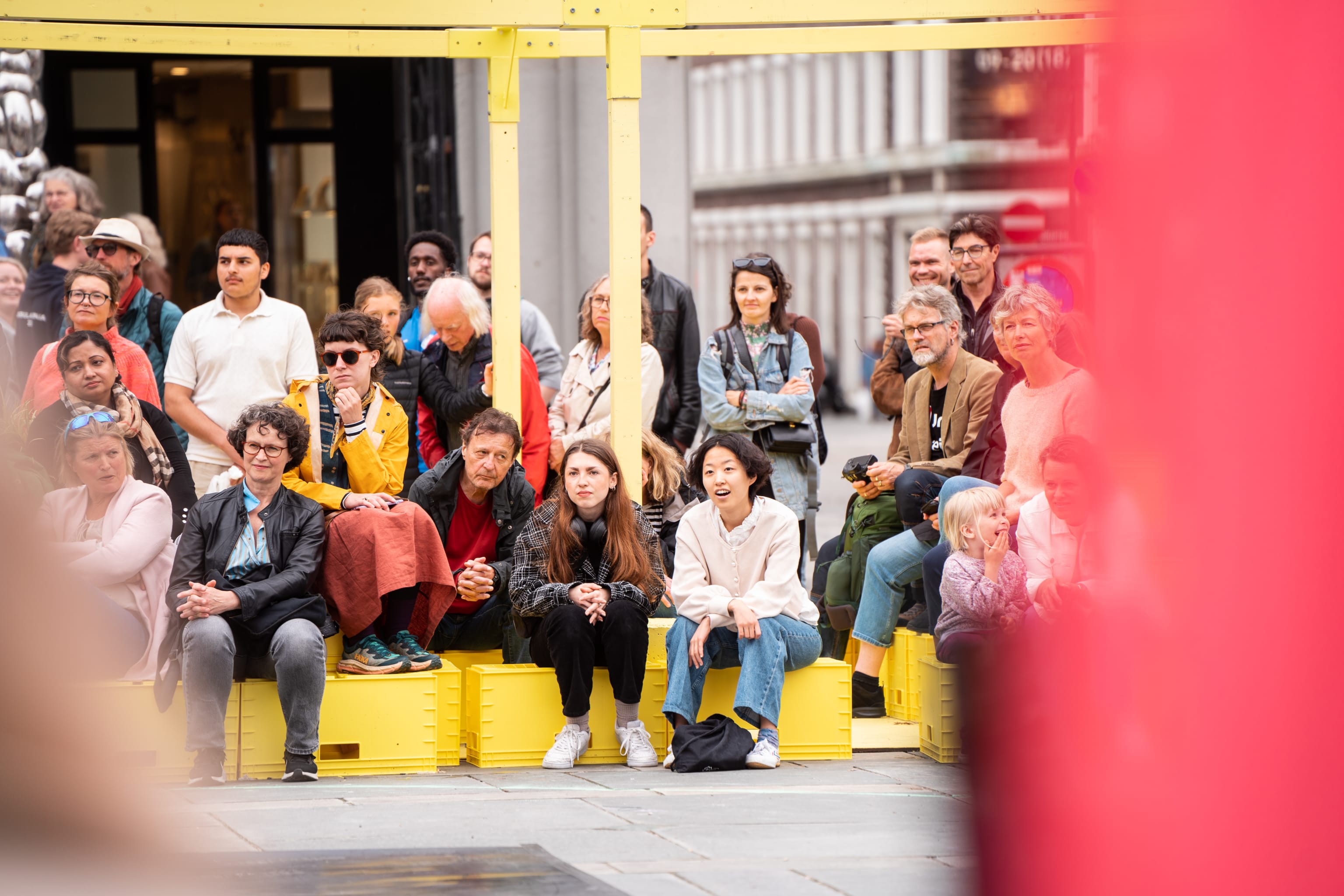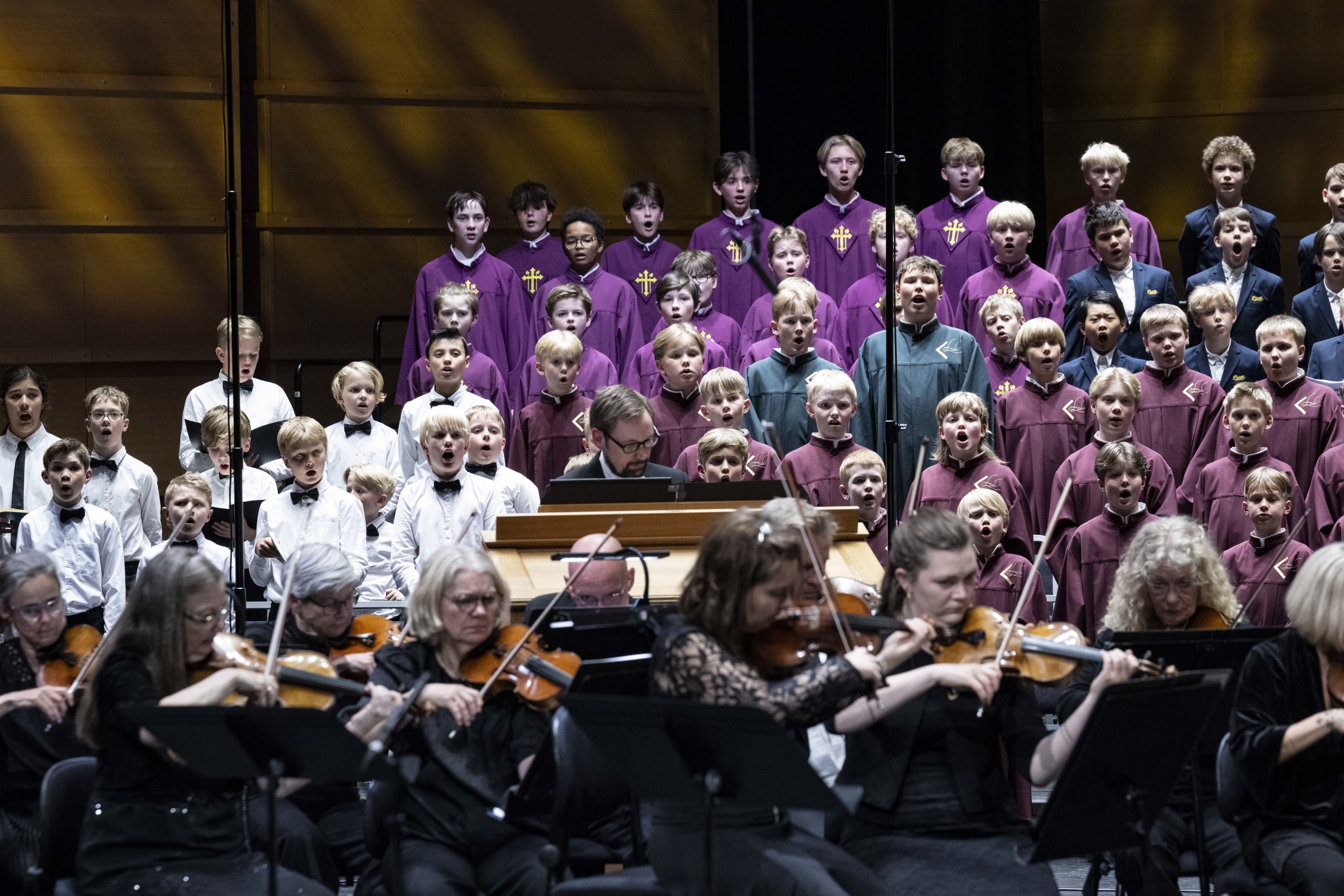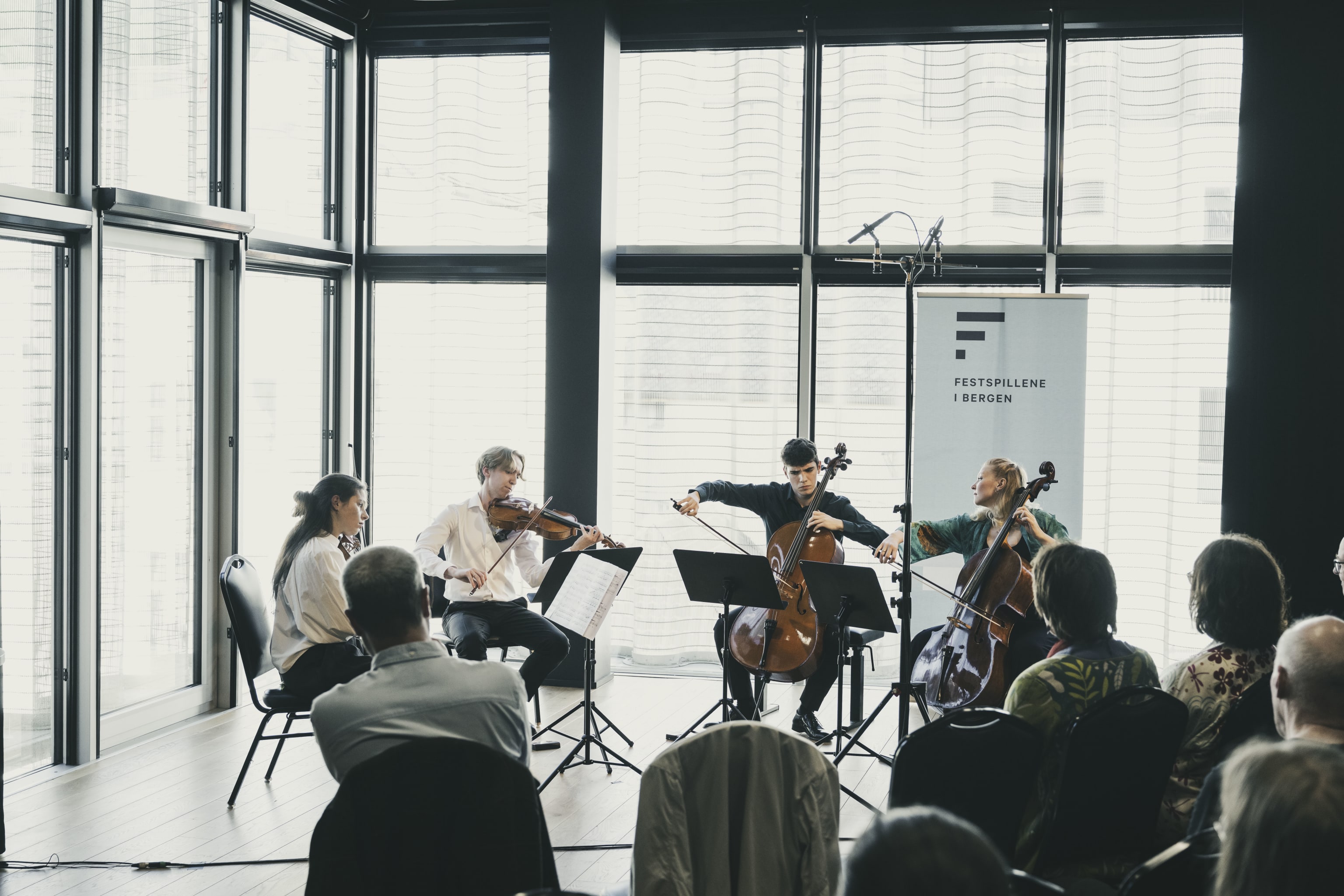
Ending with a peaceful memo
- Home
- Festival
- 2020-and-before
- Articles
- Ending With A Peaceful Memo
June 04, 2013
It is quite a scene to see maestro Andrew Litton passionately trying to get everything in place to make the closing concert of the festival a haunting experience for all.
INTENSIVE REHEARSALS: The choirs in the Peer Gynt hall last sunday. Soprano soloist Emily Magee in front.
– We need to fix this, says Litton, scrolling back his notes.
As Bergen prepares for another workweek on Sunday night, about 200 choirs are gathered in Peer Gynt hall to rehearse for the closing performance of the festival on Wednesday June 5.
– You have to sing it with more emotion. I know you're tired, but you just have to give it to me, Litton encourages the group.
War Requiem entails a massive exertion on several levels. Over 200 choirs are included. Singers from Bergen Philharmonic Choir, Collegium Musicum Choir, the KorVest, the Bergen Boys Choir and Solihull School Boys' Choir are on stage, as well as three soloists, the Bergen Philharmonic Orchestra and a chamber orchestra, conducted by Halldis Rønning.
– The challenge is to put all the pieces together into a complete set, says Litton. – It is not until the last night before the concert that we get to perform it all together.
The American soprano Emily Magee is a soloist with the choir this evening. She has sung War Requiem several times, and expresses her enthusiasm for the piece.
– It's brilliant! It is one of the great masterpieces of our time. And it's a very cohesive piece, a piece that brings us together as human beings on a deep and moving level, Magee says.
War Requiem was commissioned for the reconsecration of the Coventry Cathedral in 1962, which was rebuilt after much of the old cathedral was destroyed in a World War II air raid.
– Benjamin Britten was most famous for his operas. And somehow he has brought the theatrical touch from the opera with him in this work, explains Andrew Litton. – It is a dialogue here, almost like in an opera, between the traditional Latin requiem text, performed by soprano soloist, the choir and the symphony orchestra, and the poems by Wilfred Owen, performed by the two other soloists and the chamber orchestra. It is a fascinating musical idea.
– It is a piece that laments man’s cruelty to man, and thus a timeless piece, adds Litton.









